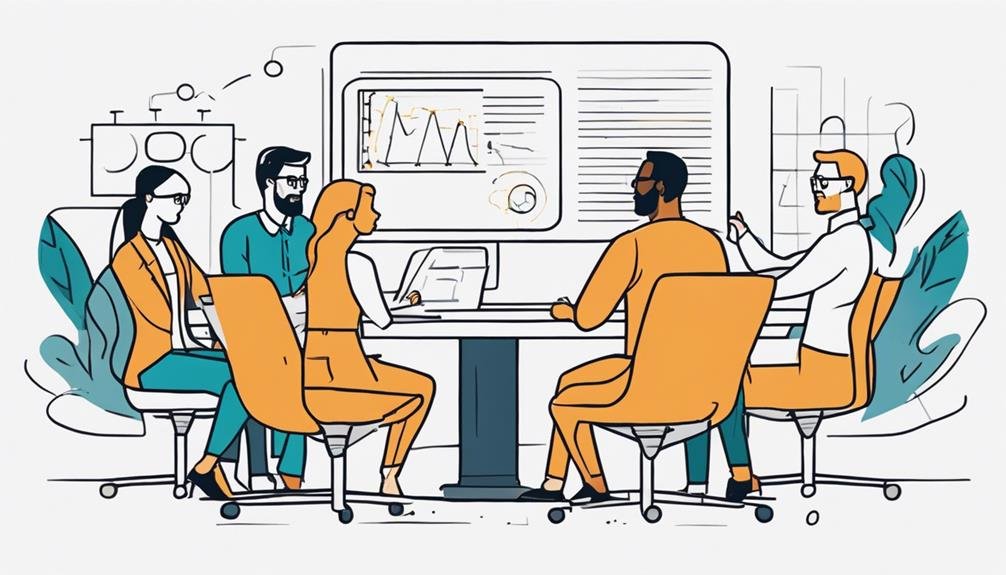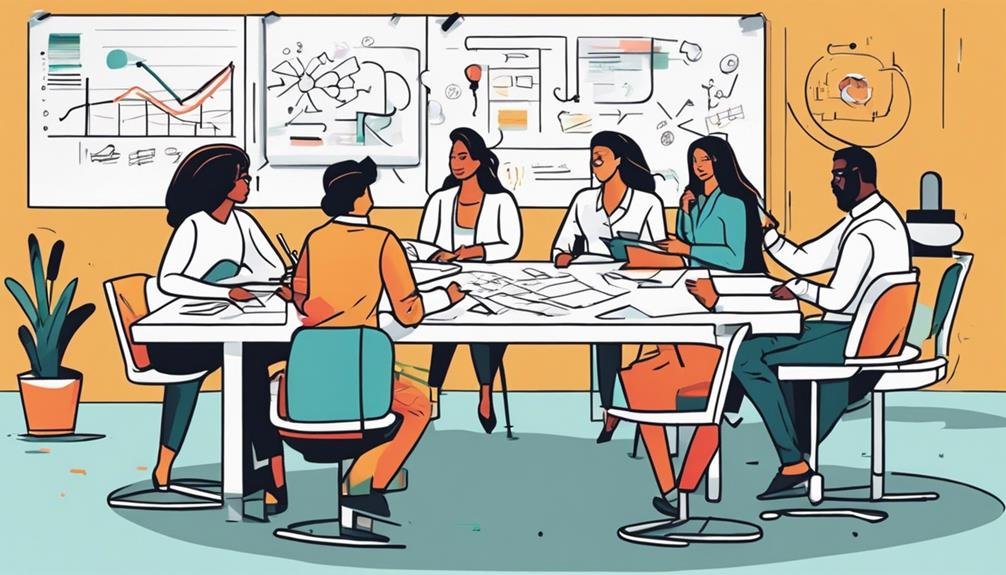Mastering crucial skills at work, like leadership, emotional intelligence, creativity, data analysis, and adaptability, is crucial for your success and growth in today's fast-paced workplaces. Developing your leadership abilities enhances team dynamics and productivity, while emotional intelligence fosters effective communication and collaboration. Embracing creativity and critical thinking drives innovation and problem-solving. Data analysis equips you with tools to make informed decisions, while adaptability guarantees you thrive in changing environments. These skills are pillars for professional development and business advancement, providing you with a solid foundation for success in your career journey.
Key Takeaways
- Leadership skills enhance decision-making and team success.
- Emotional intelligence improves communication and relationships.
- Creativity and critical thinking foster problem-solving and innovation.
- Data analysis aids in making informed decisions based on evidence.
- Adaptability allows for navigating changing work environments successfully.
Leadership and Team Success

When it comes to maneuvering the dynamic landscape of the modern workplace, honing your leadership skills is paramount for fostering team success. Effective leadership encompasses a blend of decision-making prowess and problem-solving acumen, creating an environment where trust thrives, and team members are inspired to excel. By integrating emotional intelligence into your leadership approach, you can enhance relationships and communication within your team, leading to improved collaboration and overall performance.
Building strong leadership skills is not limited to managerial roles; it extends to all positions within an organization. Your ability to lead effectively contributes significantly to the creation of a supportive and productive work environment. Through the development of your leadership capabilities, you can cultivate a culture of teamwork, empowering individuals to work together towards achieving collective goals. Investing in your leadership skills not only benefits your team but also propels you towards greater success in the workplace.
Emotional Intelligence for Communication
Developing proficiency in emotional intelligence is essential for enhancing communication effectiveness within the workplace. Emotional intelligence is a fundamental aspect that can profoundly impact your interactions with others. By honing your emotional intelligence skills, you can improve various facets of communication and workplace relationships. Here are three key ways emotional intelligence influences communication:
- Enhanced Understanding: Emotional intelligence equips you with the ability to grasp others' emotions, fostering empathy and self-awareness vital for building strong relationships at work.
- Conflict Resolution: Effective communication through emotional intelligence can reduce conflicts and enhance teamwork, creating a more harmonious and productive work environment.
- Leadership and Collaboration: Understanding and managing emotions play a crucial role in successful leadership and collaboration, enabling you to convey ideas clearly and foster positive interactions among team members.
Creativity and Critical Thinking

Creativity and critical thinking are essential skills that empower employees to navigate the ever-evolving landscape of the job market with agility and innovation. These skills are crucial for problem-solving, fostering innovation, and maintaining a competitive edge in the workplace. By honing creativity and critical thinking, individuals enhance their adaptability and contribute significantly to business success.
In today's dynamic work environments, the ability to think creatively and critically is a key differentiator. Employees with strong creativity and critical thinking skills are better equipped to tackle challenges, make informed decisions, and drive innovation within their organizations. Employers highly value these attributes, as they lead to improved problem-solving capabilities, strategic decision-making, and overall business success.
To thrive in the modern workplace, it is essential to cultivate and practice creativity and critical thinking regularly. By doing so, individuals not only enhance their own professional development but also contribute to the growth and success of the businesses they are a part of.
Data Analysis for Informed Decisions
Utilize data analysis to drive informed decisions and strategic outcomes in the workplace. Data analysis is an essential skill that enhances your performance and decision-making abilities in various job roles. Here are three key aspects to keep in mind:
- Critical Thinking: Engage in critical thinking to dissect intricate data sets, identify patterns, and draw meaningful conclusions. This skill enables you to make informed decisions based on evidence rather than assumptions.
- Problem-Solving: Data analysis equips you with the tools to solve complex problems by analyzing information effectively. By leveraging data, you can address challenges proactively and devise effective solutions.
- Human Perspective: Incorporate the human perspective into data analysis to provide context and ensure a thorough understanding of the information. This approach adds depth to your insights and allows for a more holistic decision-making process.
Adaptability in Changing Environments

In exploring the dynamic terrain of today's workplaces, adaptability emerges as a cornerstone skill essential for success. Adaptability in the workplace involves being open to change and adjusting to new situations and challenges as they arise. Employees who demonstrate adaptability are better equipped to handle unexpected changes in their job responsibilities and environment. This skill is highly valued by employers as it shows resilience, problem-solving abilities, and the willingness to learn and grow.
Adaptability enables employees to thrive in rapidly changing work environments where flexibility and quick adjustment are essential for success. By developing adaptability at work, individuals can experience increased job satisfaction, improved performance, and better career advancement opportunities. Embracing change and being able to adapt to evolving circumstances not only benefits the individual but also contributes positively to the overall work environment. Cultivating adaptability fosters a mindset of continuous learning and growth, positioning you for success in today's ever-changing professional landscape.